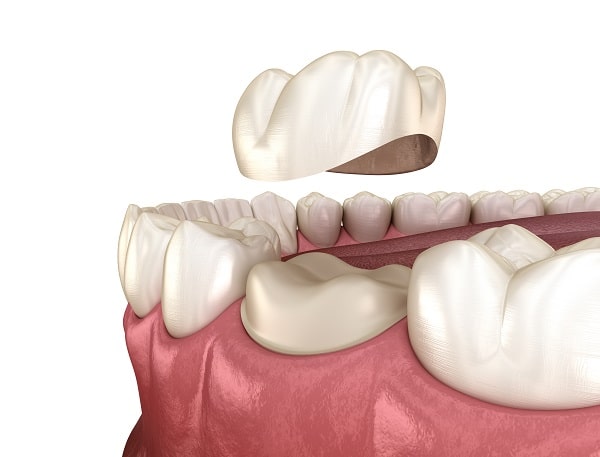Congratulations! You’ve just got a new dental crown, and your smile looks better. Dental crowns are an excellent investment in oral health, but proper aftercare is essential to ensure their longevity and effectiveness. This informative blog will provide valuable tips for maintaining your new smile and keeping your dental crown in top-notch condition. Let’s dive into the essential aftercare practices for your dental crown.
Practicing Good Oral Hygiene
Maintaining good oral hygiene is crucial for the health of your dental crown and the underlying tooth. Brush your teeth at least twice daily with a soft-bristled toothbrush and fluoride toothpaste. Pay extra attention to the area around the dental crown to remove any plaque buildup. Flossing is equally important, as it helps clean between teeth and under the crown, where brushing alone might not reach. Regular dental check-ups and cleanings are also vital to ensure your crown remains in optimal condition.
Avoid Chewing Hard Or Sticky Foods
While dental crowns are designed to be durable, it’s best to avoid chewing on hard foods, such as ice, hard candies, or popcorn kernels. Also, sticky or chewy foods, like caramel or taffy, can dislodge or damage the crown. Be cautious with your diet and choose softer, easier-to-chew alternatives to safeguard your dental crown.
Protect Your Teeth From Clenching And Grinding
If you have a habit of clenching or grinding your teeth, addressing this issue is essential to protect your dental crown and natural teeth. Grinding can exert excessive force on the crown, leading to cracks or damage over time. Consider wearing a nightguard while sleeping to minimize the impact of clenching and grinding on your teeth. Your dentist can provide a custom-fitted nightguard for optimal protection.
Be Cautious With Sticky Substances
While dental crowns are resilient, they are not invincible. Be cautious with sticky substances like adhesives or chewing gum; they can stick to the crown and potentially pull it off. If a sticky substance accidentally adheres to your crown, avoid using force to remove it. Instead, rinse your mouth with warm water or gently brush the area to dislodge it without causing any damage.
Maintain Regular Dental Check-ups
Even if your dental crown looks and feels fine, keeping up with regular dental check-ups is essential. Your dentist will examine the crown and the surrounding teeth during these visits to ensure everything is in good shape. Early detection of any issues can prevent more extensive problems in the future and extend the life of your dental crown.
Address Any Discomfort Or Sensitivity
It’s normal to experience sensitivity or discomfort around the dental crown immediately after the procedure. However, you must inform your dentist if the sensitivity persists or increases. Persistent pain or sensitivity may indicate an issue with the crown’s fit or an underlying dental problem that needs to be addressed promptly.
The Bottom Line
With proper aftercare, your dental crown can serve you well for many years, enhancing your smile and preserving the health of your tooth. Remember to practice good oral hygiene, avoid harmful habits like clenching or grinding, and be cautious with your diet to protect your dental crown. Regular dental check-ups are essential for monitoring the crown’s condition and longevity. By following these simple tips, you can maintain your new smile and enjoy the benefits of your dental crown for a long time.

